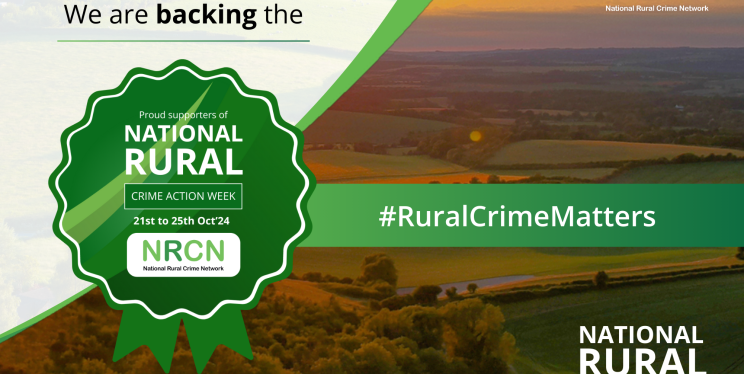Rural Crime Week

What is Rural Crime?
Rural crime tends to fall into one of four categories:
- Agricultural: Targets working farms, machinery, and smallholdings. This includes the theft of valuable equipment, fuel, and the distressing issue of livestock worrying.
- Equine: Stables and equestrian centres are affected by tack theft and livestock worrying, where dogs worry or attack livestock.
- Wildlife: Crimes such as hare coursing, poaching, and interference with protected species fall into this category.
- Heritage: Crimes that affect our historic sites, like lead theft from churches or damage to ancient monuments, along with illegal metal detecting (or ‘nighthawking’).
Rural crime also includes environmental crimes such as illegal waste dumping, fly-tipping, and pollution of watercourses and land. These activities degrade the environment and place a heavy burden on rural communities.
The Growing Challenge
Reports such as the National Rural Crime Network’s 2024 report show that rural crime often involves organised criminal groups (OCGs), and that these crimes are not always opportunistic but are part of sophisticated operations.
In addition, underreporting of rural crime remains a significant issue. Many victims, feeling isolated, do not reach out for help. This gap in reporting leaves rural communities even more vulnerable to repeat offenses.
The NFU Mutual’s 2024 Rural Crime Report stated that in 2023 alone, rural crime costs soared to £52.8 million. Key concerns include the rise in the theft of GPS systems from tractors (up by 137%) and an increase in livestock theft and dog attacks.
Supporting Local Solutions
Work to prevent rural crime is happening through well-established initiatives like Farm Watch, Horse Watch, and Neighbourhood Watch. These schemes help strengthen ties between the community and the police, fostering intelligence sharing that can prevent crimes and ensure a quick response when incidents occur.
The Rural Crime Forum offers a vital space for rural residents to discuss their concerns and explore collaborative solutions. While the forum is facilitated by the OPCC, it is shaped by those who live and work in rural areas, ensuring that the strategies reflect their unique needs.
These initiatives are led by local people, dedicated to protecting their communities by working closely with the police and sharing valuable knowledge.
